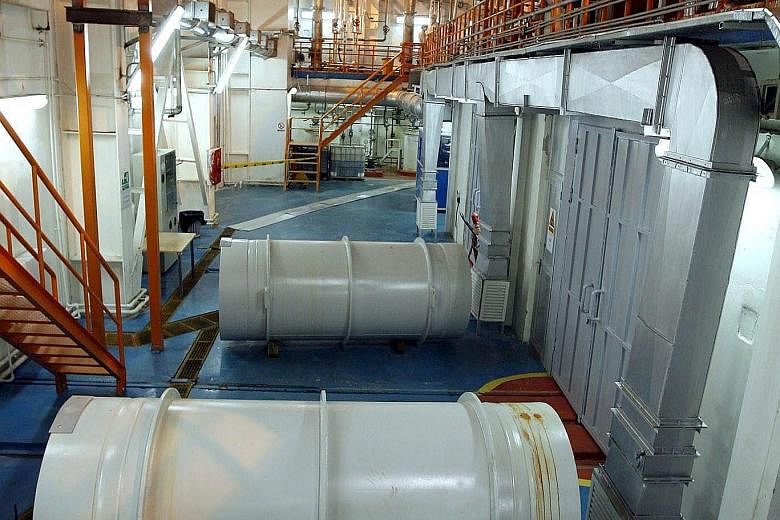•The deal puts strict limits on the amount of nuclear fuel that Iran can keep in its stockpile for the next 15 years. Iran will reduce its current stockpile of low-enriched uranium - which can be processed into bomb-grade fuel -by about 98 per cent to 300kg, either by diluting it or shipping it out of the country.
•Iran will reduce by two-thirds the number of centrifuges operating to enrich uranium at its primary processing centre in Natanz. Remaining centrifuges will be moved to a continuously monitored storage site. Taken together, the limits on fuel and centrifuges would extend to one year the time necessary for Iran to produce enough weapons-grade material for a single bomb if it should abandon the deal.
•The international arms embargo against Iran will remain for five years, but deliveries would be possible with special permission from the United Nations Security Council. The UN embargo on ballistic missiles will hold for eight years.
Those bans would be removed even sooner if the International Atomic Energy Agency is able to reach a definitive conclusion that the Iranian nuclear programme is entirely peaceful.
•Teheran will also accept allowing the UN atomic watchdog tightly controlled "managed access" to military bases. This will enable investigators to probe any suspicious nuclear activity - a key demand from the major powers.
•International sanctions against Iran will be lifted, allowing it to start selling oil again in the international markets and using the global financial system for trade.
•Should Iran be judged by an international panel not to be living up to the accord, the sanctions could "snap back" under an unusual mechanism. The panel would consist of the United States, Britain, China, France, Germany, the European Union, Russia and Iran itself, with a majority vote of the eight members sufficient to restore the sanctions.
•New restrictions will prevent Iran, for a set period of time, from experimenting with designing warheads and conducting experiments on "multi-point detonations" and other nuclear weapons-related triggers and technologies.
NEW YORK TIMES, AGENCE FRANCE-PRESSE

